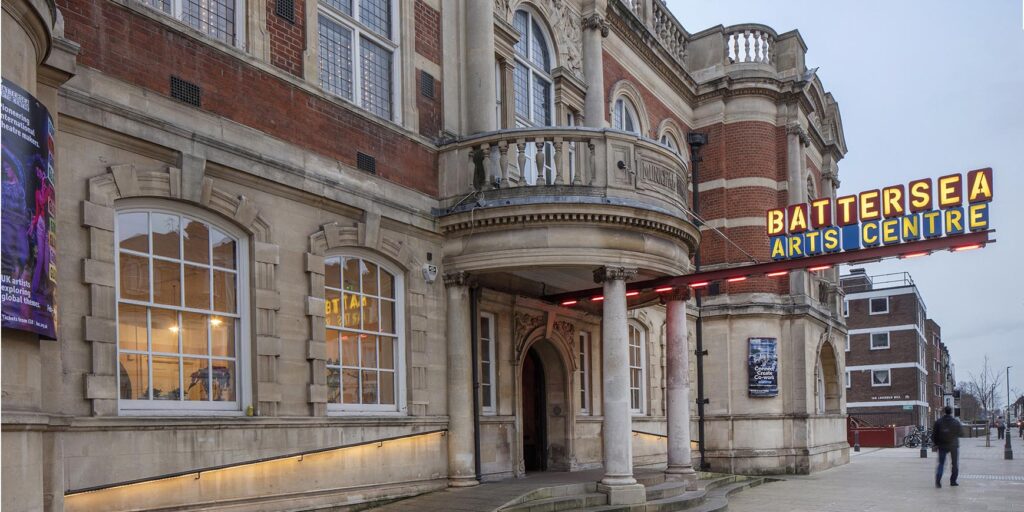
Radically embedding access and inclusivity across all its activities, this move has opened the venue up to more people.
Battersea Arts Centre is the first venue to have gone through Touretteshero’s brand new Relaxed Venue method of identifying and dismantling the barriers experienced by disabled and neurodivergent people. It strives to make the entire experience of visiting a venue more welcoming, accessible and inclusive. As part of Arts Council England’s Change Makers programme, Battersea Arts Centre has been working with Touretteshero – a company co-founded by artist Jess Thom in 2010 as a creative response to her experience of having Tourettes Syndrome. The methodology will be available for any other organisation wanting to go through the process and rethink their approach to access.
Jess Thom, co-founder of Touretteshero, said: ‘By coming on this journey, Battersea Arts Centre sends a bold and exciting message to its staff, artists and audiences that it understands, welcomes and celebrates disability arts and culture in all of its many forms. We can’t wait for you to experience the difference!’
Relaxed Performances
The Relaxed Venue method takes the principles that guide Relaxed Performances and applies them across all of an organisation’s spaces and programmes. Relaxed Performances were originally devised to make performance more accessible to people disabled by the usual rules of theatre etiquette. The principles encompass everything from clear, understandable advance information, to taking a relaxed approach to movement and noise coming from the audience.
Over 90% of performances at Battersea Arts Centre since Autumn 2018 have been Relaxed, with the benefits having been felt by a huge range of audiences, such as autistic people, those with learning disabilities, movement disorders, dementia, or just people with very loud laughs.
Tarek Iskander, Artistic Director and CEO of Battersea Arts Centre said: ‘Battersea Arts Centre has been transformed by this methodology, far beyond what we could have possibly imagined. It has completely altered how we think of ourselves and our relationship to the world. This will always be a work in progress, not a destination to reach, but as a mark of where we are, over 98% of the performances in our Going Global season are going to be Relaxed.
There’s a new immediacy and contact between the live performers and audiences that didn’t previously exist. This isn’t just a positive economic or ethical choice for us, it’s is a positive artistic one. The work we have done has been transformational, not just for a few people, but for everyone who comes into our building.’
The Relaxed Venue
Touretteshero worked across teams and with staff at every level, to identify disabling barriers and to develop creative solutions to them.
In practical terms, this is being demonstrated in several ways:
· Ensuring the key principles of Relaxed Performances are present for the overwhelming majority of Battersea Arts Centre’s programme, including a permanent ‘chill out space’ in the building, availability of ear defenders, and a commitment to welcoming diverse audiences
· Consistent ongoing offers of other types of accessible performances
· Programming that reflects disability culture and disabled-led work
· A range of commitments across all management operations to ensure that access and inclusivity remains at the heart of all structures and activity.
The Social Model of Disability
The Relaxed Venue method starts with the social model of disability, which says disability isn’t caused by people’s bodies or minds, but by how society is structured. It understands that it’s completely normal for bodies and minds to work differently, and for some people to have impairments and others not. People can be more, or less, disabled according to their environment or circumstances. The social model allows individuals, organisations and society to create less-disabling spaces, systems and attitudes by considering difference from the outset.
Well done Battersea Arts Centre and Touretteshero – we salute you!